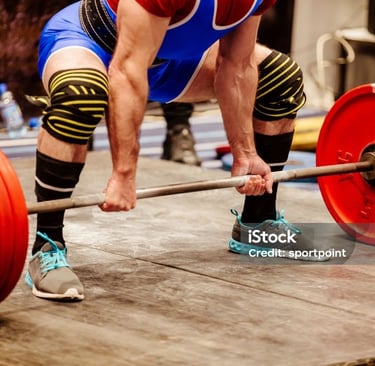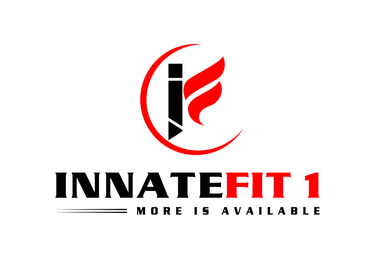Visit Innatefit1.com for exercise wear and equipment!!!

Nutrient Timing for Strength Athletes: Different Strategies for Powerlifters and Bodybuilders
Nutrient timing, the strategic intake of nutrients around workouts, plays a crucial role in maximizing performance and recovery for strength athletes. Powerlifters and bodybuilders have distinct training approaches and goals, which leads to different nutrient timing strategies to optimize their results.
FITNESS TIPS
Joseph Battle
10/11/202410 min read


Nutrient timing, the strategic intake of nutrients around workouts, plays a crucial role in maximizing performance and recovery for strength athletes. Powerlifters and bodybuilders have distinct training approaches and goals, which leads to different nutrient timing strategies to optimize their results.
This article will delve into these differences, comparing the specific needs of powerlifters and bodybuilders, and how they can tailor their nutrient intake to match their unique energy demands and training styles.
Introduction to Nutrient Timing for Strength Athletes
Nutrient timing refers to the planned consumption of specific nutrients—primarily carbohydrates, proteins, and fats—before, during, and after workouts. For strength athletes, proper nutrient timing can enhance performance, support muscle recovery, and even improve long-term training adaptations.
Both powerlifters and bodybuilders rely on strategic nutrition, but their differing goals—maximal strength vs. muscle hypertrophy—necessitate distinct approaches.
For powerlifters, the main objective is to maximize strength in key compound lifts (squat, deadlift, and bench press), while bodybuilders focus on developing muscle size and definition. These goals influence how each athlete approaches nutrient timing, with powerlifters needing to fuel for explosive strength, and bodybuilders aiming to support muscle endurance and growth.
Understanding Nutrient Timing
At its core, nutrient timing is about consuming the right nutrients at the optimal times to support energy levels, recovery, and muscle growth. The three macronutrients—carbohydrates, proteins, and fats—each play different roles in this process:
Carbohydrates are the body’s primary energy source, replenishing glycogen stores depleted during exercise.
Proteins aid in muscle repair and growth through the process of protein synthesis.
Fats contribute to long-term energy stores and hormonal regulation.
Nutrient timing can be broken down into three key windows: pre-workout, intra-workout, and post-workout. How powerlifters and bodybuilders manage their macronutrient intake during these periods differs significantly based on their training style and goals.
The Unique Energy Demands of Powerlifters vs. Bodybuilders
Powerlifting and bodybuilding are two distinct disciplines, each with specific energy demands:
Powerlifters engage in lower-rep, higher-intensity training aimed at maximizing strength in a few key lifts. Their sessions are shorter but more intense, requiring quick, explosive energy from both the body’s ATP and glycogen stores.
Bodybuilders, on the other hand, perform higher-rep, moderate-intensity sets to stimulate muscle hypertrophy. Their training sessions are typically longer and more focused on endurance, requiring sustained energy over a longer period.
These differences affect how and when each athlete should consume nutrients to support their training. Powerlifters need rapid energy bursts for short, intense lifts, whereas bodybuilders require more prolonged fuel to sustain longer sessions and encourage muscle growth.
Pre-Workout Nutrition for Powerlifters
For powerlifters, pre-workout nutrition is crucial to ensure they have enough energy to perform at their peak during heavy lifting sessions.
Since powerlifting relies on short, explosive bouts of energy, carbohydrates are essential to replenish glycogen stores that fuel these high-intensity efforts.
Carbohydrates: Powerlifters should consume a moderate amount of complex carbohydrates 1-2 hours before training to ensure they have sufficient glycogen stores. Foods like oats, sweet potatoes, or whole grains can provide a steady release of energy.
Protein: Including protein in the pre-workout meal, such as lean meats or a protein shake, helps initiate muscle repair during the workout.
Fats: Powerlifters should keep fat intake moderate before a workout, as fats can slow digestion and delay energy availability.
Timing is also important: consuming this meal too close to the workout can lead to sluggishness, so a pre-workout meal 90 minutes to two hours before training is ideal.
Pre-Workout Nutrition for Bodybuilders
Bodybuilders, focused on muscle endurance and pump, have a slightly different approach to pre-workout nutrition. Their goal is to maintain energy levels throughout longer, more intense training sessions and to prevent muscle breakdown.
Carbohydrates: Like powerlifters, bodybuilders should consume carbohydrates before their workouts, but the focus is on ensuring sustained energy. A mix of simple and complex carbs can help bodybuilders maintain their energy over the entire session.
Protein: Bodybuilders benefit from consuming a serving of fast-digesting protein, such as whey protein or branched-chain amino acids (BCAAs), to ensure that their muscles are supplied with the building blocks needed for repair and growth during training.
Fats: Minimizing fat intake before training helps bodybuilders avoid digestive slowdowns, keeping energy levels high and digestion efficient.
An ideal pre-workout meal for bodybuilders would be a balance of carbs and proteins, consumed 30-60 minutes before training to optimize energy availability and muscle preservation.
Intra-Workout Nutrition: Powerlifters' Strategy
Powerlifting sessions are typically short but intense, making intra-workout nutrition less of a priority compared to longer endurance-based workouts. However, some powerlifters might benefit from a small amount of intra-workout supplementation to maintain energy and focus during heavy lifts.
Electrolytes: Hydration and maintaining electrolyte balance is critical, as dehydration can impair performance. Powerlifters may add an electrolyte supplement to their water to stay hydrated during their workout.
Carbohydrates: Although intra-workout carbs aren't necessary for most powerlifters, some may benefit from a small amount of simple carbohydrates (like dextrose) during long, taxing sessions.
Caffeine or Creatine: Powerlifters can also benefit from using performance-enhancing supplements like caffeine or creatine to maintain energy and power output during their sets.
The primary focus for powerlifters during a workout is to stay hydrated and avoid fatigue, ensuring they can perform maximally during each set.
Intra-Workout Nutrition: Bodybuilders' Strategy
Bodybuilders, whose workouts are typically longer and more volume-focused, often rely on intra-workout nutrition to sustain energy and prevent muscle breakdown. Intra-workout nutrition is particularly important for maintaining the muscle pump—the increased blood flow to muscles during exercise that bodybuilders seek to enhance muscle size and endurance.
Carbohydrates: Intra-workout carbohydrate drinks can help bodybuilders maintain glycogen levels during long training sessions. Fast-digesting carbs like dextrose or maltodextrin are commonly used for this purpose.
BCAAs: Branched-chain amino acids are popular among bodybuilders for preventing muscle breakdown during prolonged training sessions, particularly during a cutting phase when calorie intake is lower.
Electrolytes: Staying hydrated is crucial for both performance and maintaining a muscle pump. Bodybuilders may include an electrolyte supplement in their water to support hydration and muscle function.
By maintaining energy levels and supporting muscle endurance, intra-workout nutrition helps bodybuilders push through the high volume of work required to achieve hypertrophy.
Post-Workout Nutrition for Powerlifters
Post-workout nutrition is critical for muscle recovery and glycogen replenishment after a strenuous lifting session. For powerlifters, the focus is on repairing the muscle tissue damaged during heavy lifting and restoring energy stores.
Protein: Powerlifters should aim to consume around 20-30 grams of fast-digesting protein (such as whey) within 30 minutes of completing their workout. This helps jump-start the muscle repair process.
Carbohydrates: Fast-absorbing carbohydrates, such as rice, potatoes, or a sports drink, can help replenish glycogen stores more quickly, which is important for recovery, especially during competition phases.
Fats: While fats are important for overall health, they should be minimized immediately post-workout, as they can slow down the absorption of protein and carbohydrates.
Powerlifters should focus on consuming their post-workout meal within the anabolic window—typically within an hour of finishing their session—to maximize recovery.
Post-Workout Nutrition for Bodybuilders
For bodybuilders, post-workout nutrition serves not only to repair muscle damage but also to support muscle hypertrophy by promoting protein synthesis and replenishing glycogen.
Protein: Bodybuilders should aim to consume 25-40 grams of protein post-workout, with a fast-digesting source like whey protein isolate being ideal. This ensures that the muscle-building process is maximized.
Carbohydrates: To restore glycogen levels and support muscle recovery, bodybuilders should consume a higher amount of carbohydrates post-workout compared to powerlifters. Fast-absorbing carbohydrates, such as fruit or white rice, help replenish glycogen stores quickly.
Fats: Like powerlifters, bodybuilders should avoid consuming too many fats immediately after their workout, as fats can slow down nutrient absorption.
By optimizing their post-workout nutrition, bodybuilders can enhance their muscle growth and recovery, ensuring they’re ready for their next training session.
Carbohydrate Cycling for Powerlifters
Carbohydrate cycling involves adjusting carb intake based on the intensity and volume of training. For powerlifters, this strategy can help manage energy levels, body composition, and recovery.
High-Carb Days: On heavy training days (e.g., squat or deadlift day), powerlifters can increase their carbohydrate intake to support glycogen replenishment and energy needs.
Low-Carb Days: On rest days or lighter training days, carbohydrate intake can be reduced to prevent excess calorie consumption and fat gain.
Carbohydrate Timing for Bodybuilders
For bodybuilders, carbohydrate timing plays a key role in maintaining muscle mass while staying lean, particularly during a cutting phase or competition prep. Managing carbohydrate intake helps control glycogen levels, which affects both energy during workouts and muscle appearance.
Pre-Workout Carbs: Consuming carbohydrates 1-2 hours before a workout helps ensure that glycogen stores are full, which supports both strength and endurance. This helps bodybuilders maintain intensity throughout high-rep, high-volume workouts.
Post-Workout Carbs: After a workout, fast-digesting carbohydrates are crucial for replenishing glycogen and jump-starting recovery. The faster the carbs are absorbed, the quicker the muscles can recover and grow.
Carbohydrate Cycling: Bodybuilders often cycle their carbs, consuming more on heavy training days and less on rest or light training days. This strategy helps keep body fat low while ensuring there is enough energy available for intense workouts.
During a contest prep, bodybuilders may also manipulate carbohydrate intake as they approach competition to maximize muscle definition while minimizing fat, a process sometimes referred to as "carb loading."
Protein Timing: Powerlifters vs. Bodybuilders
Protein timing is critical for both powerlifters and bodybuilders, but the focus differs slightly between the two disciplines. Both athletes need a steady supply of protein to support muscle repair and growth, but the timing and types of protein can vary based on training and goals.
Powerlifters' Protein Needs: Powerlifters generally prioritize protein intake throughout the day, ensuring that their muscles are consistently being repaired after intense training sessions. A fast-digesting protein, like whey, is ideal post-workout, while a slower-digesting protein, such as casein, can be consumed before bed to support muscle repair during sleep.
Bodybuilders' Protein Needs: For bodybuilders, protein timing is often more rigid, with a focus on maximizing muscle protein synthesis. They typically consume protein every 3-4 hours to ensure a constant stream of amino acids is available for muscle growth. Whey protein post-workout is critical for muscle recovery, while casein protein before bed can prevent overnight muscle breakdown.
Both powerlifters and bodybuilders should aim for a daily protein intake of around 1.6-2.2 grams per kilogram of body weight, adjusting for their specific training cycle and goals.
Fat Intake and Timing
Fats are essential for both powerlifters and bodybuilders, contributing to hormone production, joint health, and overall energy balance. However, the timing and quantity of fat intake can differ based on their specific training needs.
For Powerlifters: Powerlifters can afford to have moderate fat intake throughout the day, especially from healthy fats like omega-3s, which reduce inflammation and support joint health. However, they should avoid consuming large amounts of fat immediately before or after a workout, as this can slow digestion and delay nutrient absorption.
For Bodybuilders: Bodybuilders tend to keep fat intake lower, particularly when in a cutting phase, to maintain a lean physique. Fats are typically consumed away from the pre- and post-workout windows to ensure that protein and carbohydrates are absorbed quickly. However, bodybuilders still need healthy fats to support overall health and hormone function.
In both cases, sources of healthy fats such as avocados, olive oil, nuts, and fatty fish are ideal, with an emphasis on omega-3 fatty acids to help reduce inflammation and promote recovery.
Supplements in Nutrient Timing
Supplements can be an effective way to enhance performance and recovery for both powerlifters and bodybuilders. However, the types and timing of supplements differ based on each athlete’s specific needs.
Powerlifter-Specific Supplements:
Creatine: Creatine monohydrate is a popular supplement for powerlifters, as it enhances strength and power output. Powerlifters often take creatine daily, typically post-workout, to replenish creatine stores and improve recovery.
Beta-Alanine: This supplement helps buffer lactic acid buildup, allowing powerlifters to sustain high-intensity efforts during sets. It’s best taken before a workout for maximum effect.
Caffeine: Many powerlifters use caffeine before a workout to improve focus, energy, and power output during heavy lifts.
Bodybuilder-Specific Supplements:
BCAAs (Branched-Chain Amino Acids): BCAAs help prevent muscle breakdown during long, intense workouts and are often consumed intra-workout or between meals to maintain muscle mass, especially when in a calorie deficit.
Whey Protein: Whey protein is a fast-digesting protein ideal for post-workout recovery, helping bodybuilders repair muscle tissue and promote growth.
L-Glutamine: This amino acid is popular among bodybuilders for enhancing recovery and reducing muscle soreness after intense training sessions.
Both athlete types may benefit from general health supplements like multivitamins and omega-3 fatty acids to support overall wellness, reduce inflammation, and maintain joint health.
Common Mistakes in Nutrient Timing for Strength Athletes
While nutrient timing can significantly enhance performance, there are common mistakes that strength athletes often make, which can hinder their progress.
Skipping Pre-Workout Meals: Some athletes train on an empty stomach, believing it will enhance fat loss or energy utilization. However, this often results in poor performance due to a lack of available glycogen.
Over-Reliance on Supplements: While supplements can be helpful, relying too heavily on them without prioritizing whole foods can lead to nutrient imbalances and suboptimal performance.
Neglecting Post-Workout Nutrition: Missing the post-workout nutrition window can delay recovery and limit muscle repair, particularly for bodybuilders seeking hypertrophy.
Failing to Adjust Nutrient Timing: Nutrient timing should evolve with training cycles. Athletes often fail to adjust their intake based on whether they’re in a competition phase, bulking phase, or cutting phase, leading to inconsistent results.
Recognizing and avoiding these mistakes can help both powerlifters and bodybuilders maximize their performance and recovery.
Creating a Personalized Nutrient Timing Plan
The ideal nutrient timing plan should be tailored to each athlete’s specific goals, training schedule, and body type. Here are some steps to help create an effective, personalized plan:
Assess Your Training Cycle: Whether you’re a powerlifter in a strength-building phase or a bodybuilder prepping for a competition, your nutrient timing should reflect your current training intensity and goals.
Track Your Macronutrient Intake: Using apps or meal trackers can help ensure you’re hitting the right balance of carbs, protein, and fats at the correct times.
Experiment and Adjust: Nutrient timing isn’t a one-size-fits-all approach. Start with general guidelines, but be open to experimenting with the timing of your meals and supplements to see what works best for your body.
Listen to Your Body: If you feel sluggish during workouts, you might need more carbs pre-workout. If recovery is slow, increase your post-workout protein intake. Personalizing your approach based on how you feel and perform is key to long-term success.
By fine-tuning your nutrition, you can optimize both your performance and your body composition.
Conclusion: Optimizing Performance Through Nutrient Timing
Nutrient timing is a critical factor in the success of both powerlifters and bodybuilders. While the overall goal for both athlete types is to enhance performance and recovery, the specific strategies differ based on their unique training demands.
Powerlifters focus on fueling their explosive strength and rapid recovery, while bodybuilders prioritize muscle endurance and hypertrophy.
By understanding and implementing tailored nutrient timing strategies, athletes can make the most of their training sessions, promote faster recovery, and ultimately achieve better results.
Whether you're chasing maximal strength or aiming to build a more defined physique, proper nutrient timing can be the difference between good results and truly exceptional progress.
FAQs
What is nutrient timing, and why is it important for strength athletes?
Nutrient timing refers to strategically consuming certain nutrients around workout periods to maximize performance, recovery, and muscle growth. It's crucial for strength athletes because it ensures energy availability during training and promotes faster recovery.How does pre-workout nutrition differ between powerlifters and bodybuilders?
Powerlifters focus on consuming carbs and fats to fuel short, intense efforts, while bodybuilders prioritize carbs and fast-digesting protein to maintain endurance and muscle pump during longer, higher-volume sessions.Should powerlifters consume intra-workout nutrition?
Powerlifters generally don’t require extensive intra-workout nutrition since their training sessions are shorter. However, staying hydrated and possibly supplementing with electrolytes or a small amount of carbohydrates can help during longer sessions.What are the best post-workout nutrients for bodybuilders?
Bodybuilders should consume fast-digesting protein (like whey) and carbohydrates immediately post-workout to promote muscle recovery, replenish glycogen stores, and stimulate muscle growth.Can powerlifters benefit from carbohydrate cycling?
Yes, powerlifters can benefit from carbohydrate cycling, especially by increasing carb intake on heavy training days and reducing it on rest days to better manage energy and body composition.What supplements are beneficial for powerlifters and bodybuilders?
Powerlifters often use creatine, beta-alanine, and caffeine for performance, while bodybuilders focus on BCAAs, whey protein, and glutamine for recovery and muscle preservation.
